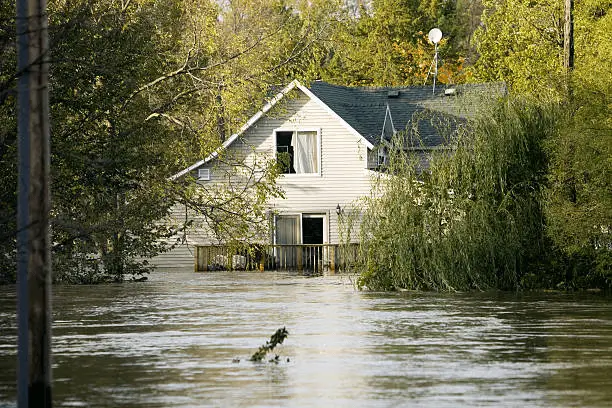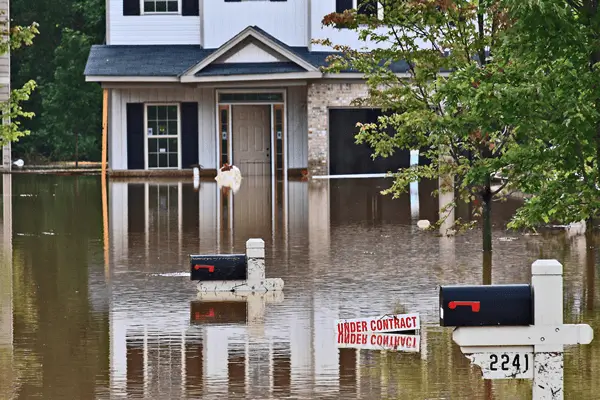Fayetteville, Arkansas, with its picturesque landscapes and vibrant community, is not immune to the threat of flooding. As extreme weather events become more frequent, the question of whether flood insurance is mandatory in Fayetteville arises. This blog aims to explore the flood insurance landscape in Fayetteville, discussing the factors that make it essential and whether it is a mandatory requirement for homeowners.
The Flood Risk in Fayetteville:
Fayetteville, nestled within the Ozark Mountains, faces an increased risk of flooding due to its unique topography and proximity to water bodies. The city experiences substantial rainfall, making it susceptible to both flash floods and river flooding. The lush landscapes and picturesque surroundings, while contributing to the city’s charm, also elevate the potential risks associated with these natural occurrences.
Given Fayetteville’s vulnerability to flooding, it becomes imperative for residents to consider adequate protection against potential financial losses resulting from flood damage. The devastation caused by floods can extend beyond physical property damage, affecting personal belongings, structural integrity, and overall well-being.
Understanding the gravity of the situation, the National Flood Insurance Program (NFIP) becomes a key player in fortifying homeowners against the financial aftermath of floods. While participation in the NFIP is generally voluntary, certain circumstances make it mandatory, particularly for those residing in Special Flood Hazard Areas (SFHAs). SFHAs are zones identified by FEMA as having a higher risk of flooding, and homeowners with mortgages from federally regulated or insured lenders in these areas are obligated to carry flood insurance.
As Fayetteville’s local authorities implement floodplain management strategies, it underscores the collective effort to mitigate flood risks within the community. Even if not mandated by local regulations, the benefits of securing flood insurance in Fayetteville, AR extend beyond compliance, offering homeowners a crucial layer of financial security in the face of unpredictable weather events. By understanding the local flood risk, residents can make informed decisions, ensuring the resilience of their homes and the overall well-being of the community.

The National Flood Insurance Program (NFIP):
The National Flood Insurance Program (NFIP), overseen by the Federal Emergency Management Agency (FEMA), stands as a cornerstone of flood protection across the United States. This program offers federally-backed flood insurance to property owners, renters, and businesses, serving as a vital financial safeguard in flood-prone areas.
While NFIP enrollment is typically voluntary, specific circumstances mandate participation. Notably, property owners with mortgages from federally regulated or insured lenders are required to secure flood insurance if their property resides in a Special Flood Hazard Area (SFHA). These SFHAs are zones identified by FEMA as having an elevated risk of flooding.
By making NFIP participation mandatory in such high-risk areas, the program aims to ensure that property owners are adequately covered against the financial consequences of potential flood damage, fostering community resilience in the face of natural disasters.
Mandatory Flood Insurance Requirements:
In Fayetteville, like many communities nationwide, flood insurance can become mandatory under specific circumstances. A pivotal scenario arises when a property owner secures a mortgage from a federally regulated or insured lender, and their property is situated in a Special Flood Hazard Area (SFHA). SFHAs, identified through comprehensive flood maps by FEMA, signify regions at an elevated risk of flooding.
Federal regulations mandate lenders to ensure that properties in SFHAs are covered by flood insurance. This legal requirement is aimed at mitigating the financial impact on property owners and fostering community resilience in the face of potential flooding. If you are financing your home through a federally regulated lender in Fayetteville and your property falls within an SFHA, obtaining flood insurance becomes a mandatory obligation.
This mandatory aspect ensures that property owners take proactive measures to protect their investments and aligns with the broader goal of reducing the economic repercussions of flood-related damages. By making flood insurance compulsory in high-risk areas, the regulatory framework aims to create a more resilient and prepared community in Fayetteville, Arkansas, and similar regions across the United States.
Fayetteville Floodplain Management:
Fayetteville’s local authorities are integral in proactively managing flood risk within the community. Employing comprehensive floodplain management strategies, the city focuses on minimizing the impact of flooding on both properties and infrastructure. This multifaceted approach encompasses zoning regulations, meticulous land use planning, and strategic infrastructure improvements.
To further enhance resilience, local ordinances may dictate mandatory flood insurance coverage for property owners situated in specific flood-prone areas. These regulations serve a dual purpose: safeguarding individual property owners against financial losses resulting from floods and ensuring that the community as a whole has sufficient financial resources to recover from flood-related damages.
By making flood insurance mandatory in targeted zones, Fayetteville’s local authorities contribute to the overall preparedness and sustainability of the community, aligning with broader efforts to create a safer and more resilient living environment for its residents.
Benefits of Flood Insurance:
Even if flood insurance is not mandatory for your property in Fayetteville, it is strongly recommended. Flood damage can be financially devastating, and standard homeowners’ insurance policies typically do not cover flood-related losses. Having a flood insurance policy ensures that you are financially protected in the event of a flood, covering damages to your home and personal belongings.
Additionally, participating in the NFIP may make you eligible for federal disaster assistance in the event of a major flooding event. Without flood insurance, you may have to rely solely on personal savings and government assistance, which may not be sufficient to fully recover from the losses incurred.
Conclusion:
While flood insurance is not always mandatory for all property owners in Fayetteville, it is a crucial component of responsible homeownership. The risk of flooding in the area, coupled with potential regulatory requirements, emphasizes the need for comprehensive protection.
Whether mandated by your mortgage lender or chosen voluntarily, flood insurance provides peace of mind and financial security in the face of unpredictable weather events. Understanding the local flood risk, complying with any mandatory requirements, and investing in flood insurance are essential steps toward safeguarding your property and ensuring a resilient future for Fayetteville residents.
Are you prepared for floods? Get a free flood insurance quote today, and secure your peace of mind. Call now!


